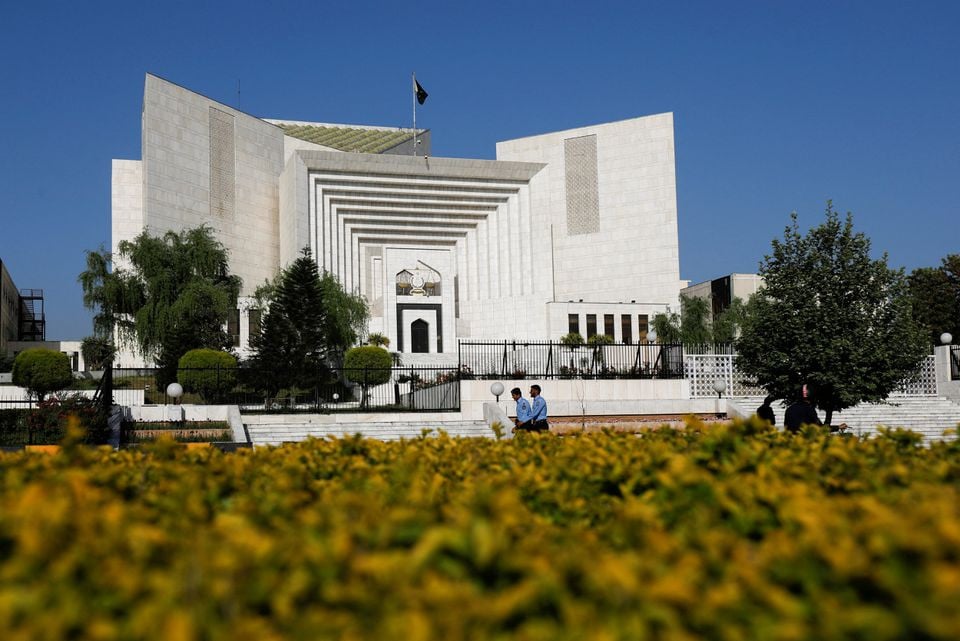In Friday’s case involving the re-examination of the lifetime disqualification of legislators under Article 62 (1) (f) of the Constitution, the Supreme Court (SC) did not rule.

“As quickly as feasible, we will work to devise a shorter order. “Hopefully not today, but very soon,” Chief Justice Qazi Faez Isa stated.
A wider bench of the seven-member Supreme Court has resumed hearing a series of petitions to establish the duration of MPs’ disqualification. With Chief Justice Qazi Faez Isa at the helm, the bench also includes Justices Syed Mansoor Ali Shah, Yahya Afridi, Aminuddin Khan, Jamal Khan Mandokhail, Muhammad Ali Mazhar, and Musarrat Hilali.
Because of discrepancies between lower courts’ rulings and laws passed by lawmakers, the highest court has decided to step in and decide whether a politician should be disqualified for life or for the five years specified in the Election Act.
Article 62(1)f, which was added to the Constitution by Gen Ziaul Haq, the former military ruler, is the root cause of the disqualification dilemma. In the Panama Papers case, however, a larger bench of the Supreme Court permanently disqualified former prime minister Nawaz Sharif, elevating the issue to the forefront.
A change was made to Section 232 of the Election Act in June of last year by parliament, which increased the disqualification period to five years under Article 62(1)(f). The Supreme Court is about to untangle a web of intricacy, and this legislative action just makes it worse.
During the hearing, Chief Justice Isa expressed his dismay at the “encroachments” that have been made to the country’s bill of rights over the years, stating that the “original Constitution” had greater sanctity.
The lawyer for Jahangir Tareen, Advocate Makhdoom Ali Khan, was summoned to the rostrum as the hearing began today. He started by saying that the Samiullah Baloch case caused an ambiguity between Articles 62 and 63, and then he went on to say that two separate factors are at play because the wording of the two articles is different.
In the Samiullah case, Justice Shah noted that while the disqualification period was unambiguous, the declaration was not.
The attorney informed Justice Mandokhail that a declaration of disqualification cannot be issued by a civil court. The Constitution, he went on to say, maintains the question of qualification and disqualification distinct.
Next, Justice Mazhar wanted to know if Article 62 is applicable before, during, or after an election. According to the council, Article 62 is only relevant during election times, whereas Article 63 can be employed whenever it is considered appropriate.
Concerned about the contempt for the country’s constitutional past, CJP Isa then interjected.
“We are disregarding the fact why these amendments were brought into the Constitution. We are disregarding the fact that the original Constitution has greater sanctity than amendments brought unless there are such amendments which enable to serve the people better,” added the CJP.
He went on to say that the Pakistani constitution has been subject to “encroachment” in a series of ways and that, despite media ads, no political party has publicly supported this viewpoint.
Then, Tareen’s lawyer said that the 18th Amendment omitted any indication of the statement becoming permanent in Parliament.
The judge decided to hold off on rendering a decision after hearing all sides’ arguments.










































